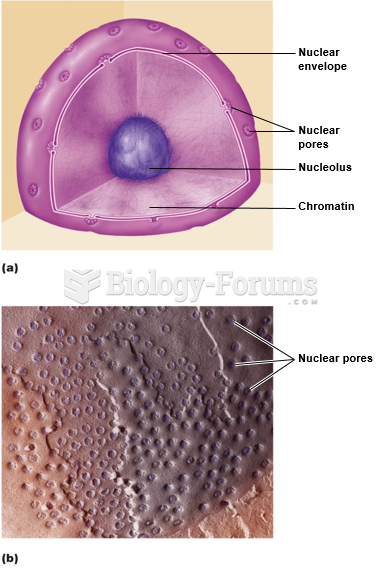|
|
|
Stevens-Johnson syndrome and Toxic Epidermal Necrolysis syndrome are life-threatening reactions that can result in death. Complications include permanent blindness, dry-eye syndrome, lung damage, photophobia, asthma, chronic obstructive pulmonary disease, permanent loss of nail beds, scarring of mucous membranes, arthritis, and chronic fatigue syndrome. Many patients' pores scar shut, causing them to retain heat.
The longest a person has survived after a heart transplant is 24 years.
For pediatric patients, intravenous fluids are the most commonly cited products involved in medication errors that are reported to the USP.
More than 150,000 Americans killed by cardiovascular disease are younger than the age of 65 years.
Blood is approximately twice as thick as water because of the cells and other components found in it.







